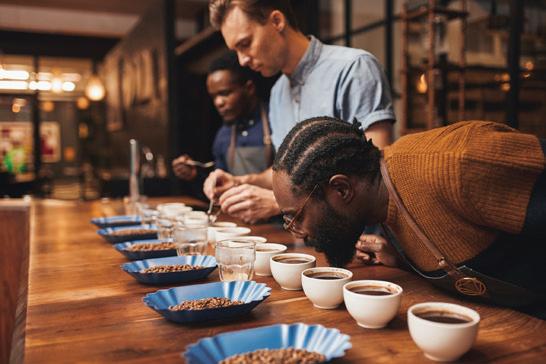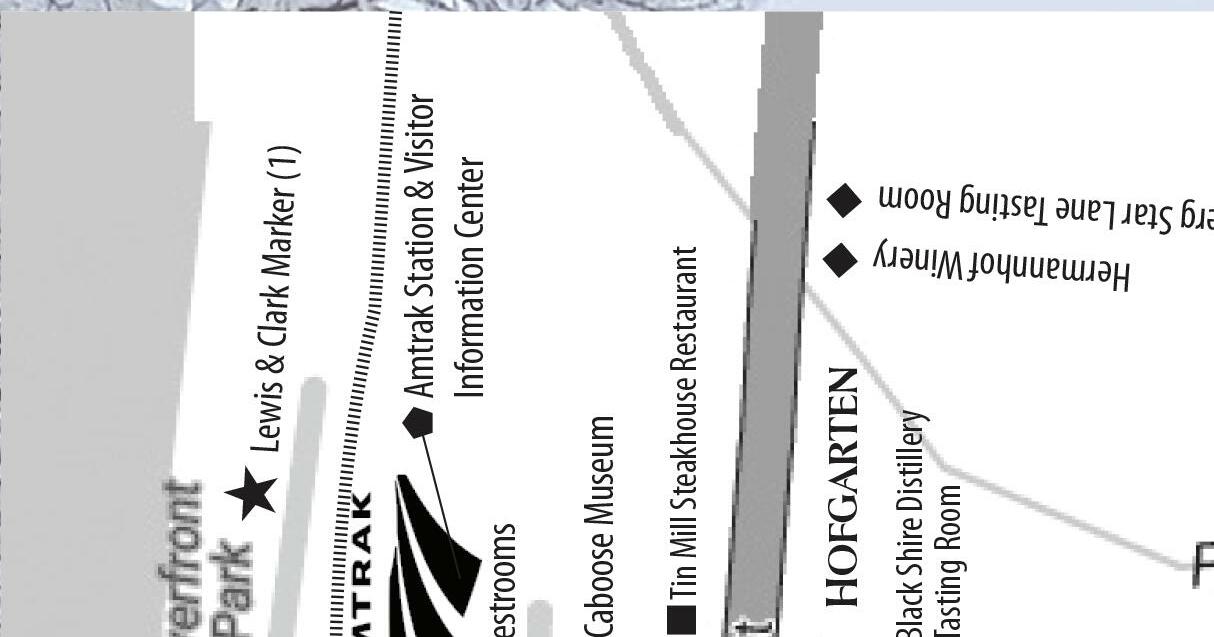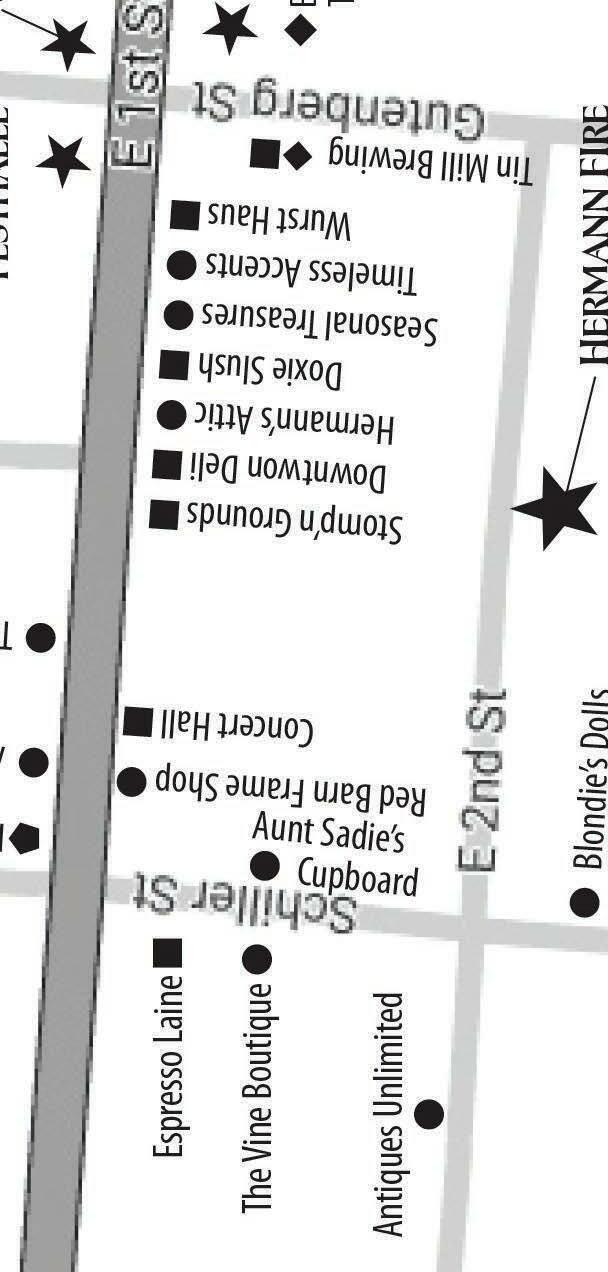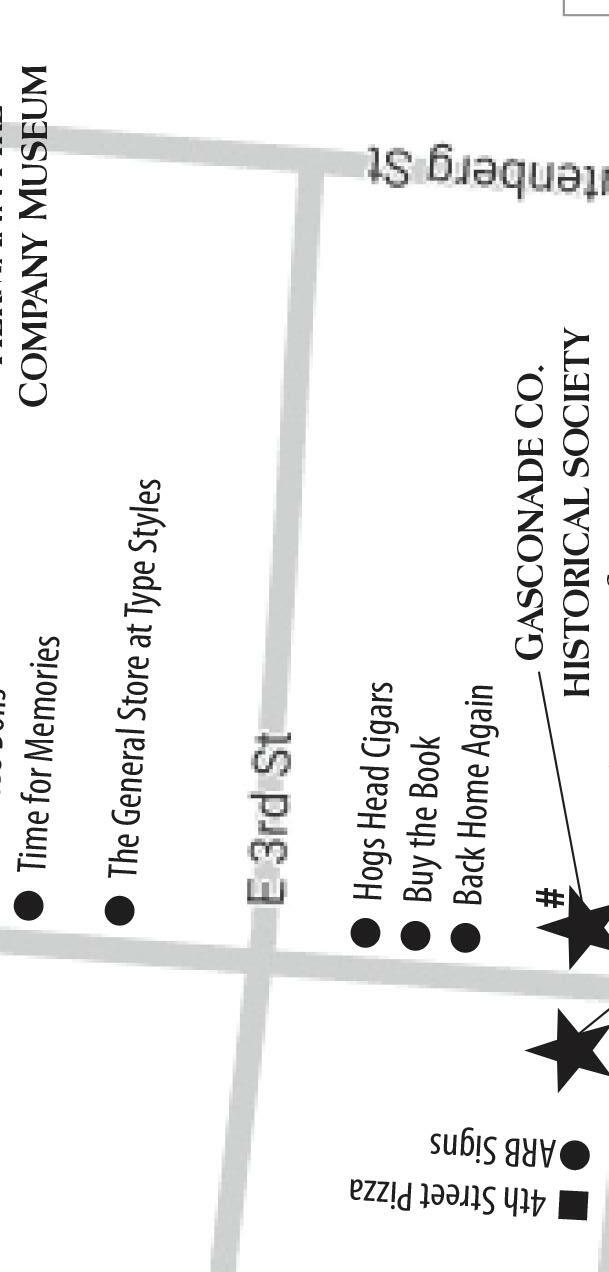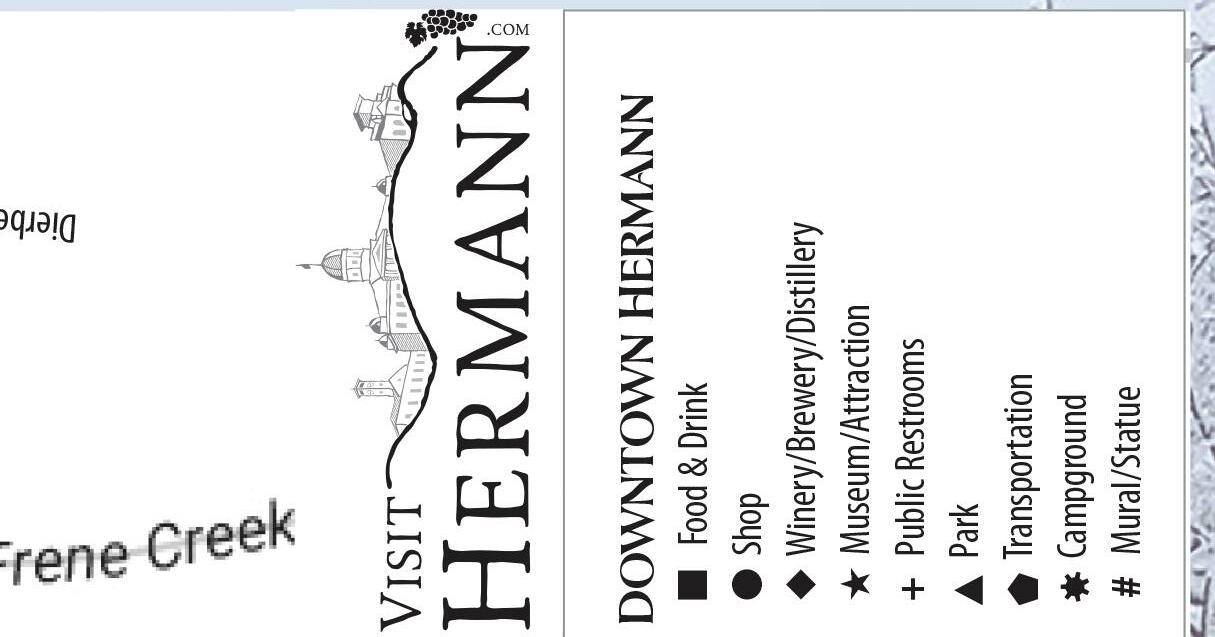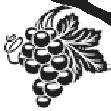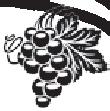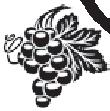













































James Borzillo has figured out a way coffee can actually do quite a bit of good for law enforcement, first respond ers, and their families.
Borzillo operates Blue Line Brews in Hermann, with the assistance of his family -- such as wife Cecily and their niece, Fiona Monahan. The trio were hard at it in mid-October, roasting coffee beans for the company in the cellar of Saleigh Mountain, 124 E. Fourth St. His mother, Sally Borzillo, sells the coffee upstairs and swears by its taste.
“I drink it. It’s good,” she says, adding that the coffee has proven to be a great complement to the family-owned Saleigh Mountain’s focus on shoe repair, shoe care and leather work.
“We sell coffee,” she says. “It’s crazy.”
The coffee roaster Borzillo uses is a 10K model, perhaps one of the largest in town, and he received help in his startup from Espresso Laine. Levi Landolt played a key role in those humble beginnings, with the launch occurring Dec. 31, 2020. He watched roast training in St. Louis in November 2020.
The inspiration to open the business originated in 2018 and 2019, when his brother John -- a veterinarian work ing in Indonesia -- told him he enjoyed the coffee there. Both brothers grew up in Hermann.
A portion of Blue Line Brews’ coffee sales go to St. Louis-based The BackStoppers, a non-profit charitable or ganization which assists first re sponders and their families; and to other first responders’ chari ties -- such as those associated with firefighters -- and their fam ilies, throughout the nationwide public safety community.

“They step in and support the family” whenever a public safety death in the line of duty occurs, said Borzillo.
He is also using part of the coffee revenues to help fund me morial golf tournaments and re lated charities.
The coffee produced by Blue Line Brews is entirely from Southeast Asia, specifically In donesia. Consistent freshness and very short shelf lives for the customers are the accents.
“I don’t like coffee sitting around for a long time,” Borzillo said.
Online sales were the main function for the business at the outset. But the sales approach has since branched out on a retail tangent. Perk It Up in St. Louis is one such customer.
There are two distinct dark roast blends, one medium roast, and K-Cups. The grinding and roasting are done in Hermann, and then shipped off to K-9 Units in Pennsylvania for packaging before being sent back to Missouri. Bor zillo, who is a police officer in St. Louis County, says he typically roasts coffee one or twice a month.
“This is kind of something we’re trying to build up,” he said.

So far, there has been an increase in the number of coffee orders around the holidays. The sales are also being pushed on the company’s website, bluelinebrews.com. A lot of sales have occurred in Wisconsin, but that may just be beginning for yet another coffee roaster that’s making Hermann its home.
















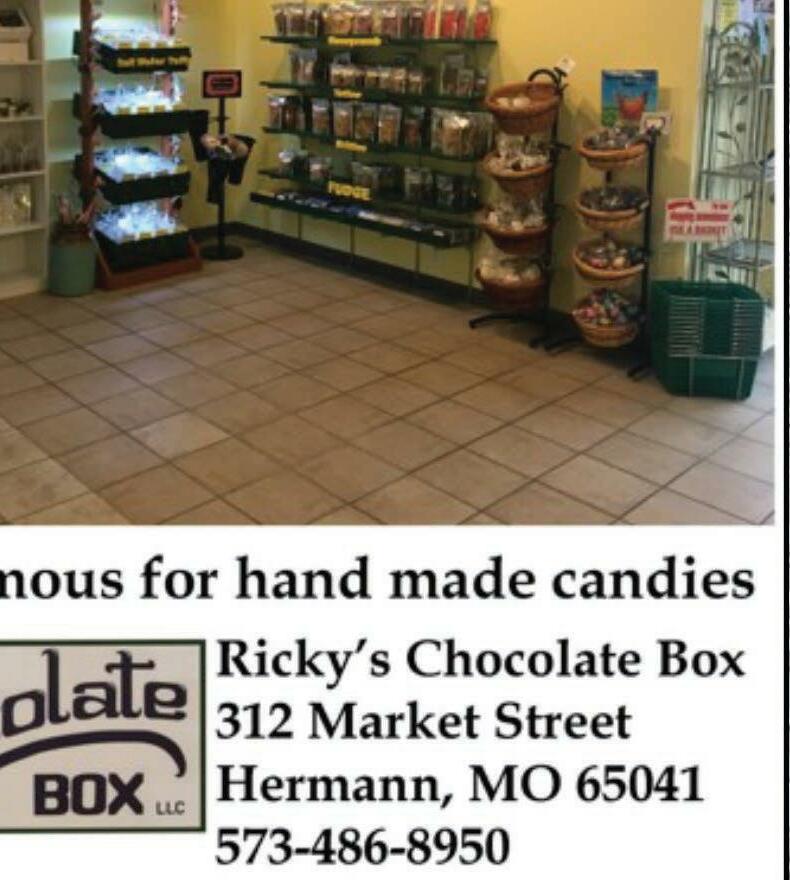
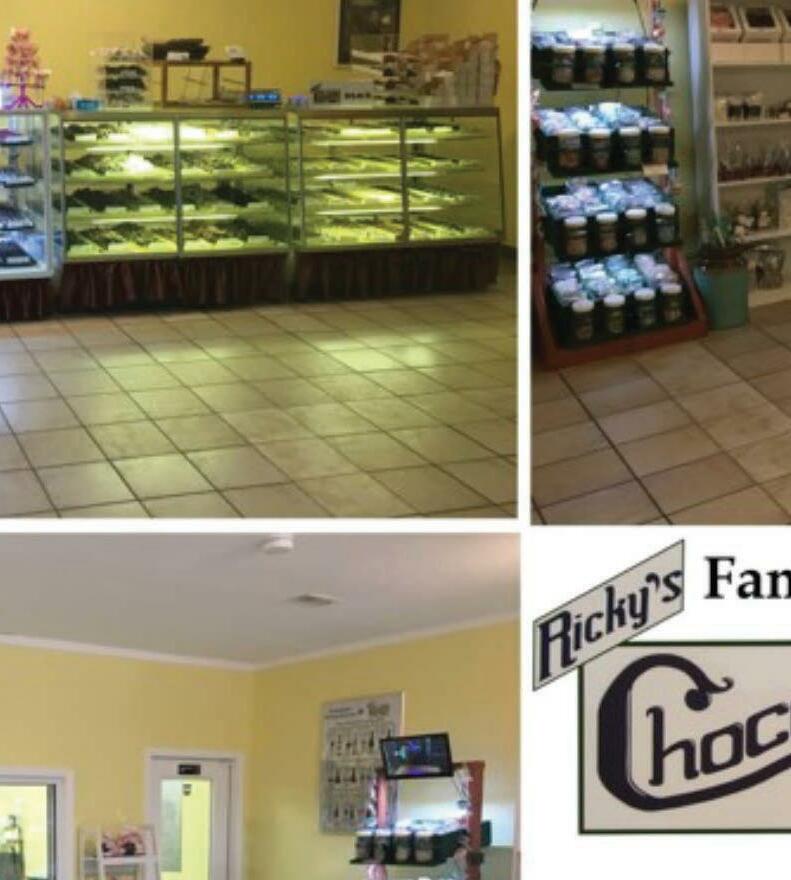





























































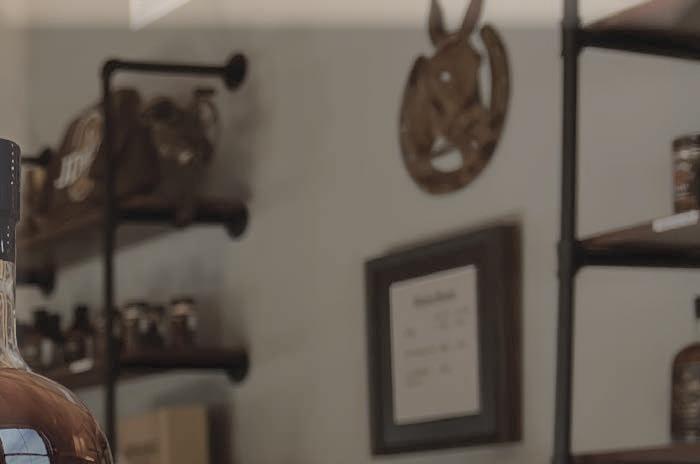














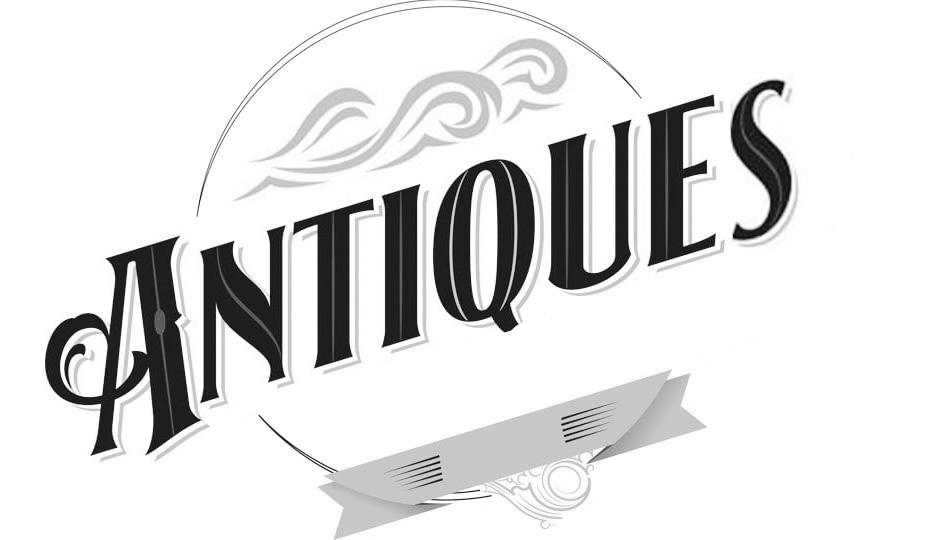
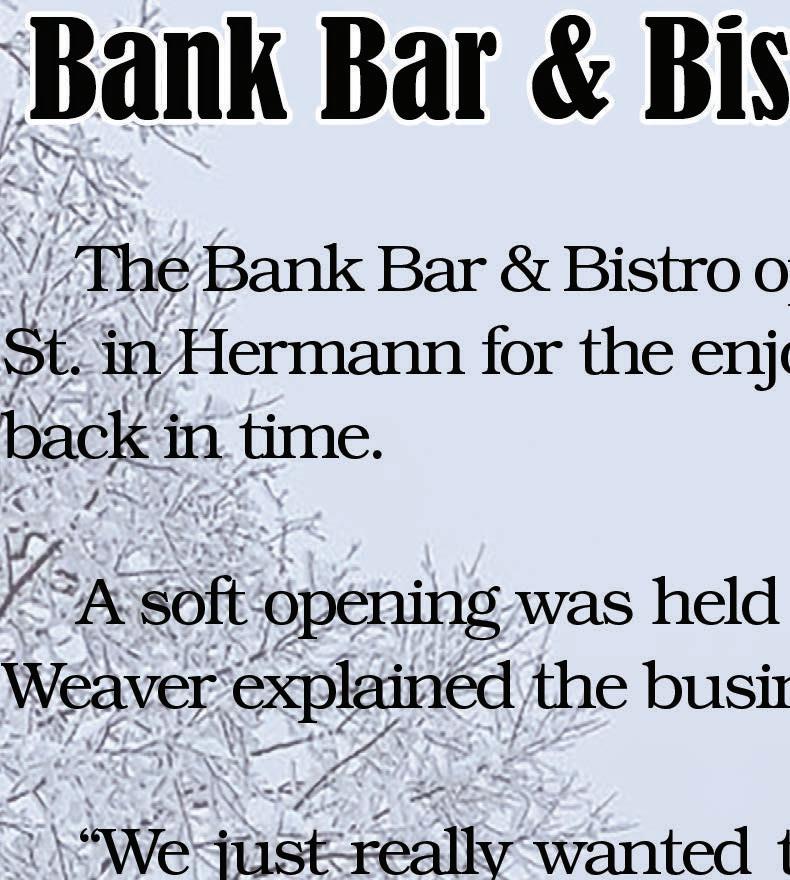




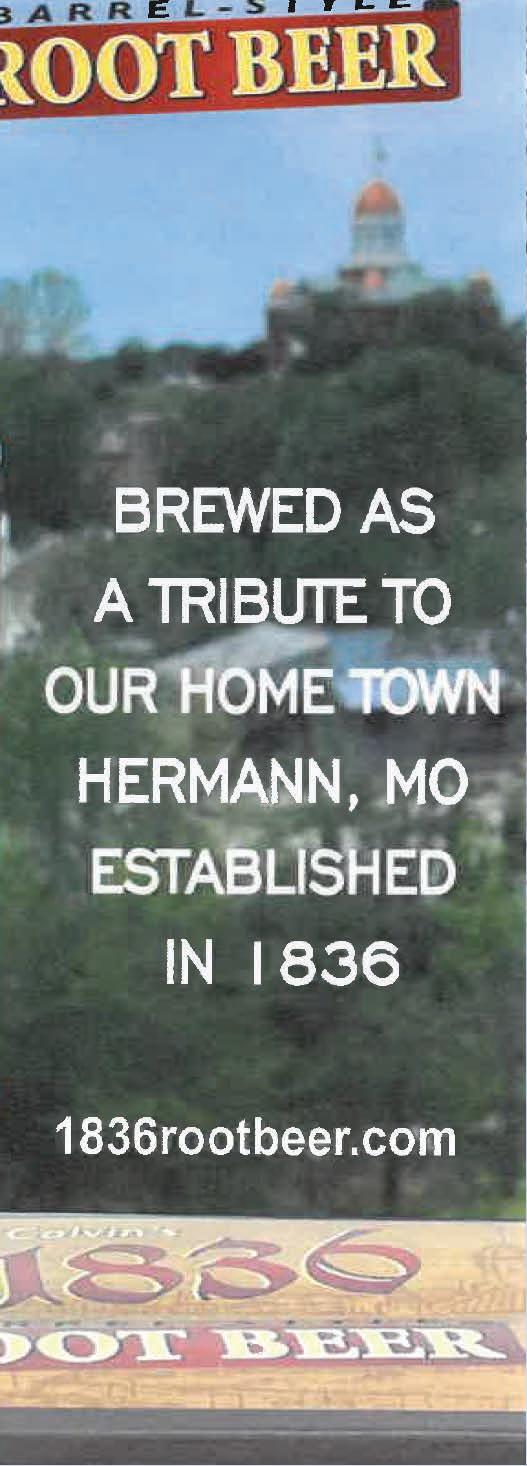













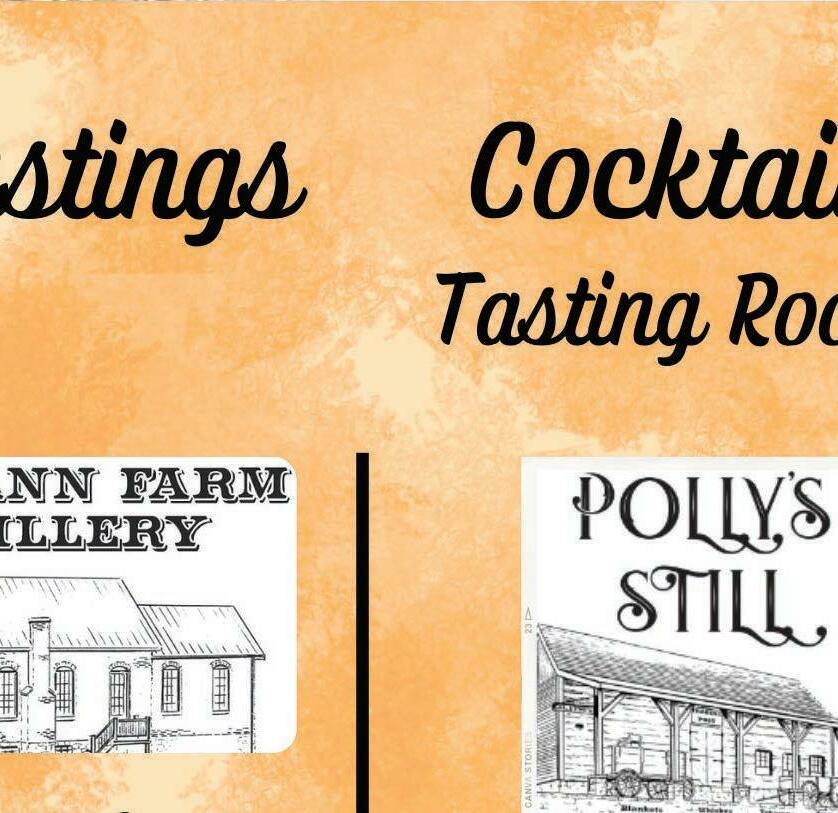


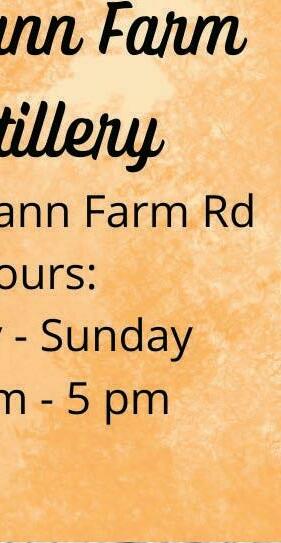



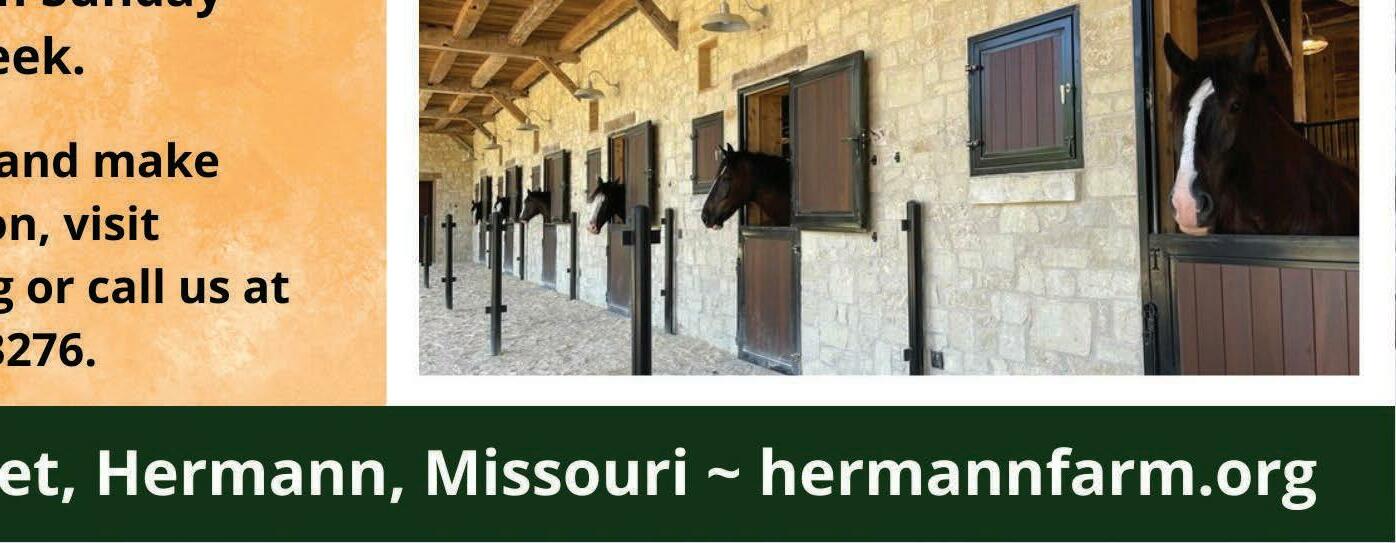


































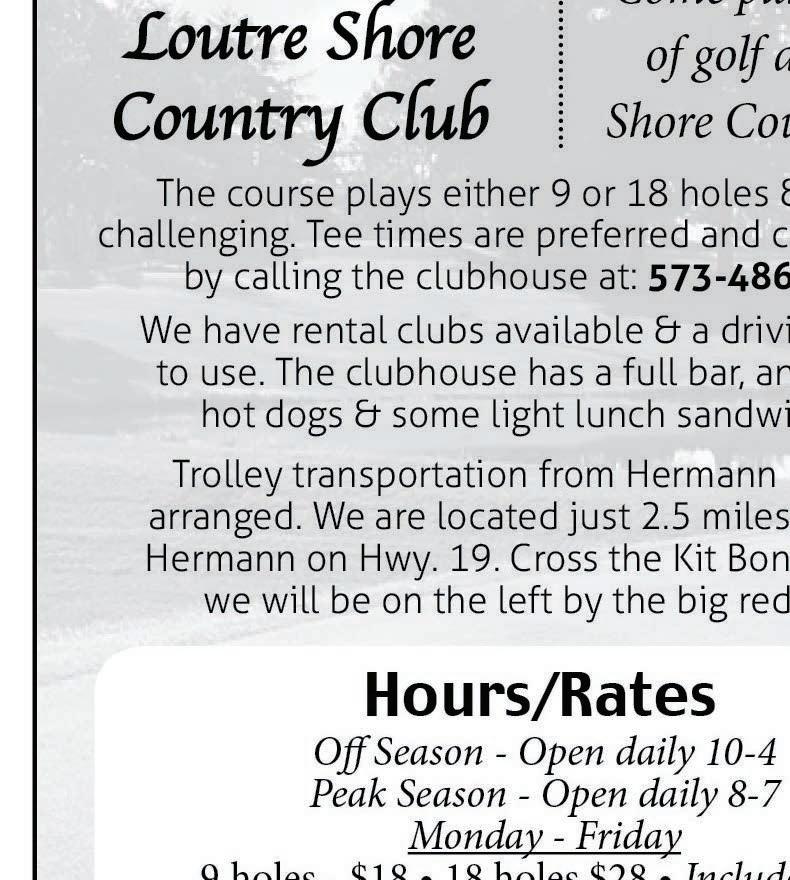





Hermann is destined to become the home base for yet another winery, but this time with a twist: everything old is new again.
St. Johns Winery, along with Friendship Brewery, will arrive in Hermann in a projected 2024 open ing. One of the organizers is Raylene Hollrah, who spoke about the major investment she and others are planning for downtown.
Sohns and Friendship will be located on its original site behind the current American Family In surance office at 400 Market St., where Hollrah works as an agent for the company. Her grandparents bought the property in the 1960s and decided to leave the wine cellars alone. The cellars date to 1906 and will be reopened, Hollrah said. Like all other things alcohol, Prohibition placed an abrupt halt to the Sohns’ endeavors later on in the 20th century.
“It has been well-preserved,” Hollrah said of the former winery.. “This is the right time....My dream is to have a winery here.”
The existing American Family office will be demolished. But the overall project is something says her family approves.
Hollrah’s partnership includes Steve Vollmer of Hermann Crown Suites and 1837 Cellar Bar. He and others approached Hollrah to consider the idea, and he agreed to participate. It’s taken a year to iron out the business plan.
Family will be an important theme in the development. The Sohns came from Germany, and one of the objectives will be to demonstrate what the settlers first did upon arrival. Rieslings were the specialty, and now the task is to replicate the grape variety in Missouri -- where it has traditionally not been grown.
Stone Hill Winery has agreed to become the private label distributor of the Sohns wines, and have it sold at the 1837 Cellar Bar across the street.
“Obviously we’ll have sweeter wines,” said Hollrah.
In line with Sohns will be the Friendship Brewery, which will specialize in its German craft beer at the site. A German-style brewhouse will be built. All together, the third level of the planned complex will house the brewery, with Sohns on the second level. Hollrah said the third level will encompass a bar and restaurant, featuring upscale bar food and specials.
The construction will be in line with the character, flavor and heritage of Hermann’s historic district, with the accent on an old-fashioned Germany style and preservation of traditional winemaking tech niques. A speakeasy will be placed in one of the cellars.
“It will be a unique venue,” she said.
Plans call for the demolition of American Family to occur in early 2023, with the hope of opening the new venture sometime in 2024. There have already been conversations with the City of Hermann on the process of permitting and licensing.



“They know our intentions,” Hollrah stated. There’s a realization that parking will be an issue.
The facility will be available for group rental for various functions, such as family reunions.






American Family is moving to a new location at the Bavarian Hills Plaza, where Hollrah has proper ty. Other rentals will be available at that building.
RAY SCHERER












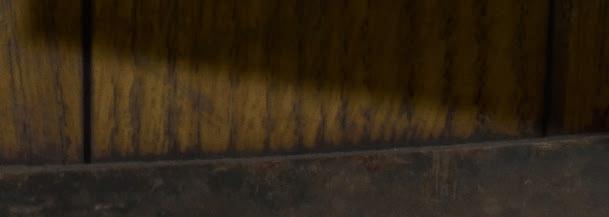


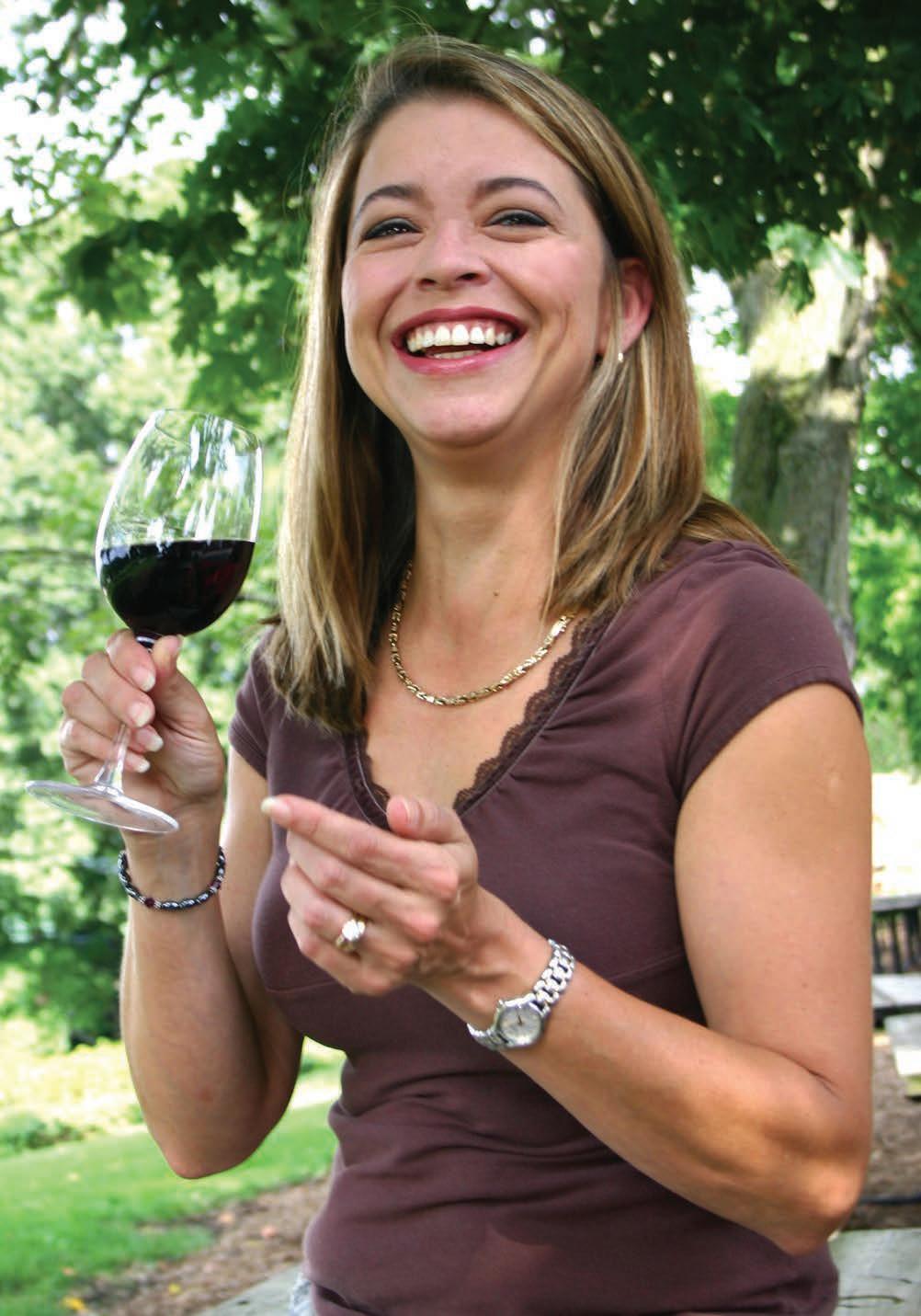





























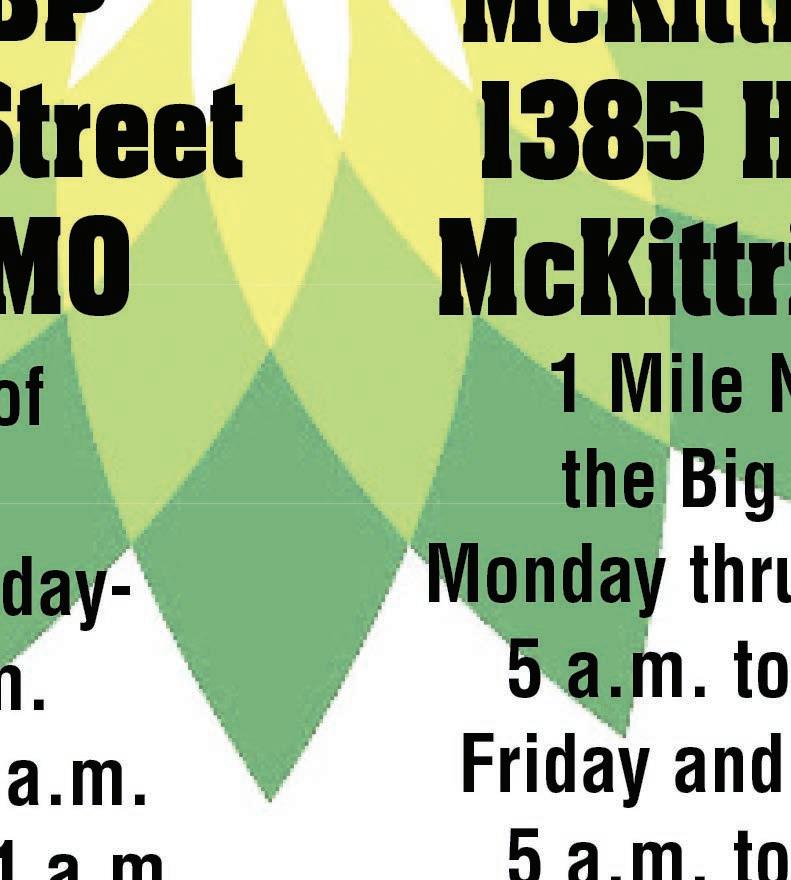

Espresso Laine, 100 Schiller St., remains on a course to increase the skills of its coffee bean roasting, presenting a variety of global tastes to customers.
The business, owned by Lainee Landolt, became involved in roasting its own coffee beans back in early 2019, when her son, Levi, took and passed certification classes at FirstCrack Coffee, St. Louis.

“Coffee has to come to the first crack while you’re roasting,” Lainee said. Coffee beans actually crack while roasting, much in the same way as popcorn, forming an essential part of the process in making a good roast.
It turned out to be a three-day class at FirstCrack for Levi, and he’s continued study ing coffee bean roasting ever since. Lainee has the ability to back him up in roasting whenever necessary.
The Landolts said they’ve learned about the importance of cupping and studying the different taste characteristics of coffee, and the personality of each type of bean.
“The darker the roast, the less caffeine,” they said of the education taught by First Crack. “We knew what we wanted.”

Espresso Laine orders beans in approx imate 1,000-pound bags.
“We roast weekly. It’s fresh,” Lainee said. The bean roasting by the business is done and perfected according to customer preferences.
Levi said he can roast up to five kilos of the beans in 15 minutes. The beans can originate from many nations, he said, but there’s a catch.


“Coffee tends to grow close to the Equa tor,” he said. Therefore, Espresso Laine relies on Central America, India, Ethiopia, Africa, Southeast Asia, and East Asia for its coffees.
Both of the Landolts remain well versed in coffee bean roasting by taking con tinuing education in the craft. It’s typical for small coffee houses to talk with other roasters, and that also provides a knowl edge base at times.
“I tinker around with the different roasts,” Levi said.


The Espresso Laine coffee bean roast ing happens in a rehabbed building ad jacent to the business that dates back to 1897, and which once served as a sum mer kitchen.
RAY SCHERER






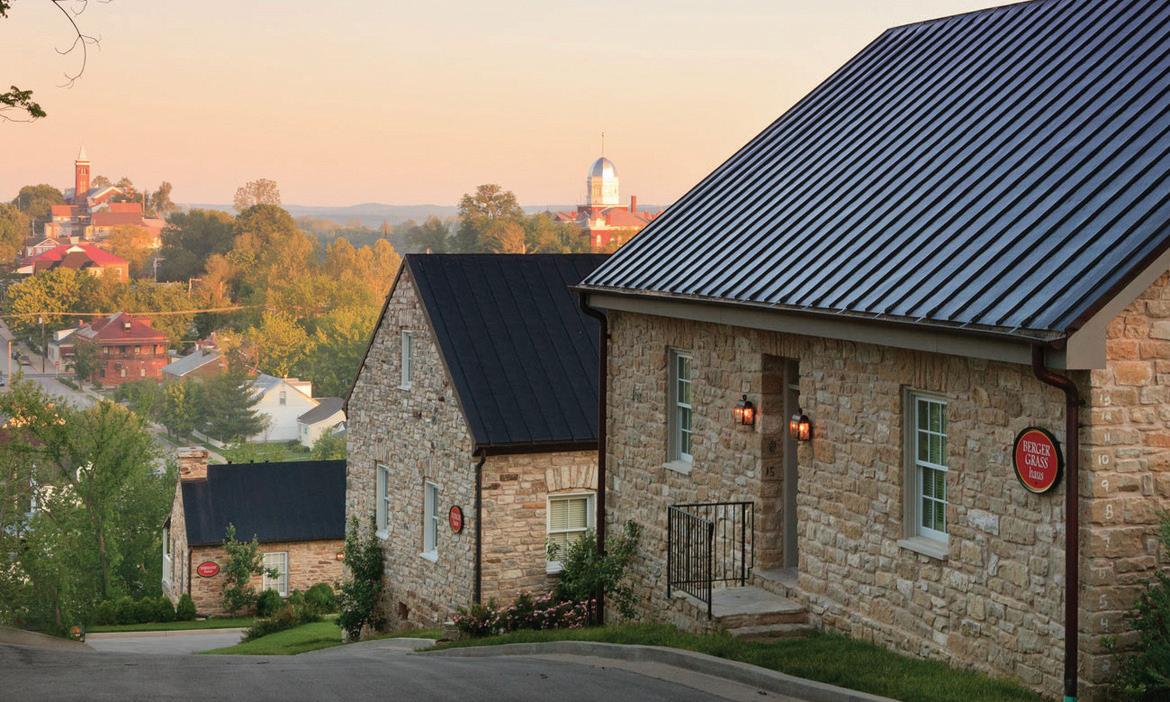



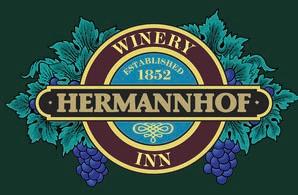


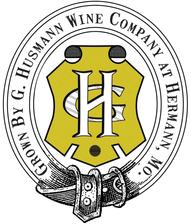
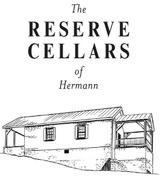


Early German immigrants had a dream. They were in search of an area that would provide them a place to live all their ideals in their homeland. Hermann, today, stands as a monument to those dreams.
The Germans who founded Hermann came along some 200 years after the Pilgrims’ arrival in the United States.


The town was settled by people from many different regions of the Old Country. Today, Hermann is regarded as Missouri’s most quintessentially German town – which is no accident. Hermann is the result of an ideological blueprint for cultural retention.

A few German immigrants to the United States became disenchanted with what they found in other parts of their new country. They had become appalled at how soon their countrymen had forgotten their native language and customs. A few of them resolved to do something about it.
They felt they could find a colony where the language and customs could be preserved. What they were really looking for was a German state within the United States.
In 1836 the German Settlement Society of Pennsylvania was founded in Philadelphia with the pur pose of creating a colony “where German language, values and traditions could be maintained.”
A stock company was formed, a constitution adopted, and three deputies were sent to the Middle West to choose a site for the settlement. Once there, they were probably influenced by the fact the area reminded them of the Rhineland in Germany, and that Gottfried Duden had written a glowing account of his trip to the area, an account no doubt read by many of the prospective settlers.
A site on the river was chosen and the first settlers arrived in Hermann in 1837.

After the scouts had sent in their reports, the Society selected George F. Bayer, a school master and fine musician, to buy the land. Bayer purchased 11,300 acres for $15,612 in the Frene Creek Valley, sur rounded on three sides by hills and bluffs, and on the fourth by the Missouri River. Only a small part of the Bayer purchase lay along the Gasconade River and its confluence with the Missouri River—the land designated by the three deputy scouts.

A few eager families arrived in the fall of 1837. George Bayer and his family were to arrive with them, but Bayer became very ill in Pittsburgh and was unable to leave for the new colony until spring. The settlers arrived at the mouth of Frene Creek in mid-December, on the last steamboat of the season. They found shelter in log cabins with a few who had arrived before them. But they had not learned of Bayer’s illness. By spring, they had become disgruntled.



Then Bayer and 280 more settlers arrived. Now he had a bigger job on his hands. He was land agent, surveyor, arbitrator, schoolteacher and general manager for a group of ambitious but contrary and de manding people.
Letters of complaints were being sent to the “home office” of the Society in Philadelphia. Soon, Bay er was relieved of his duties, less than a year after his arrival. He did in 1839 and is buried in the city cemetery.


In 1986, as a major part of the town’s 150th birthday of its founding, Bayer’s burial place was en hanced, and he was exonerated. A stone wall and wrought iron fence were built around the grave. The area was landscaped, and a bronze plaque installed.
The settlers soon discovered that the hilly land surrounding Hermann was excellent for growing grapes. The area developed a booming wine-making industry which, along with beer and whiskey pro duction, shoe making, and shipping, offered the town’s near 100 percent German populace economic independence and stability throughout the 19th century. As a result of this, Hermann became exactly what its founders had envisioned-a place where German language, values and traditions flourished.
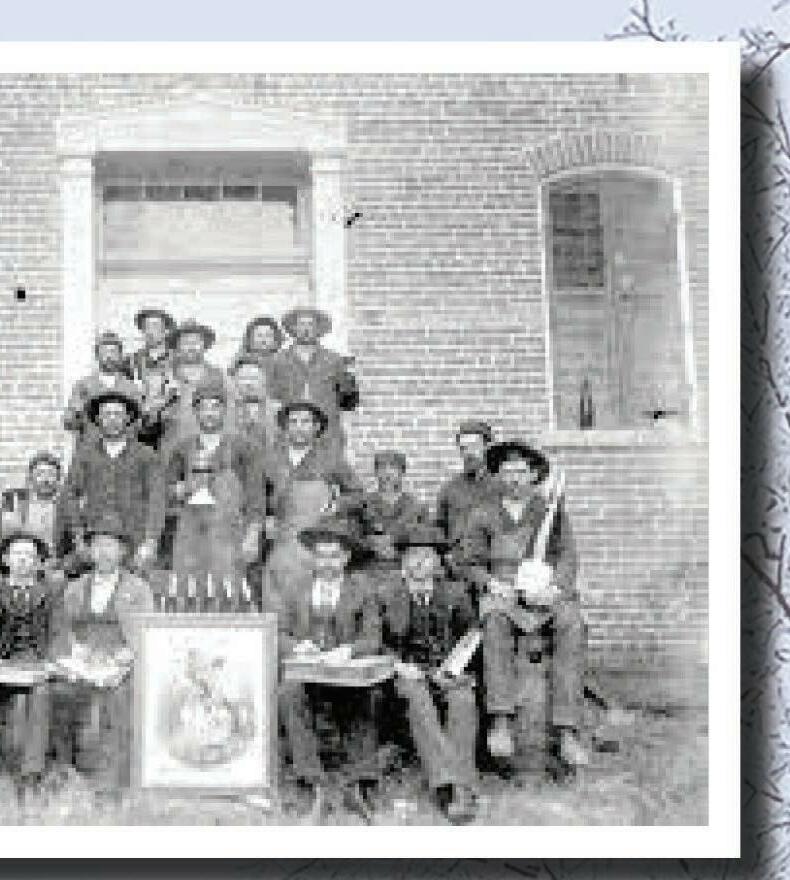
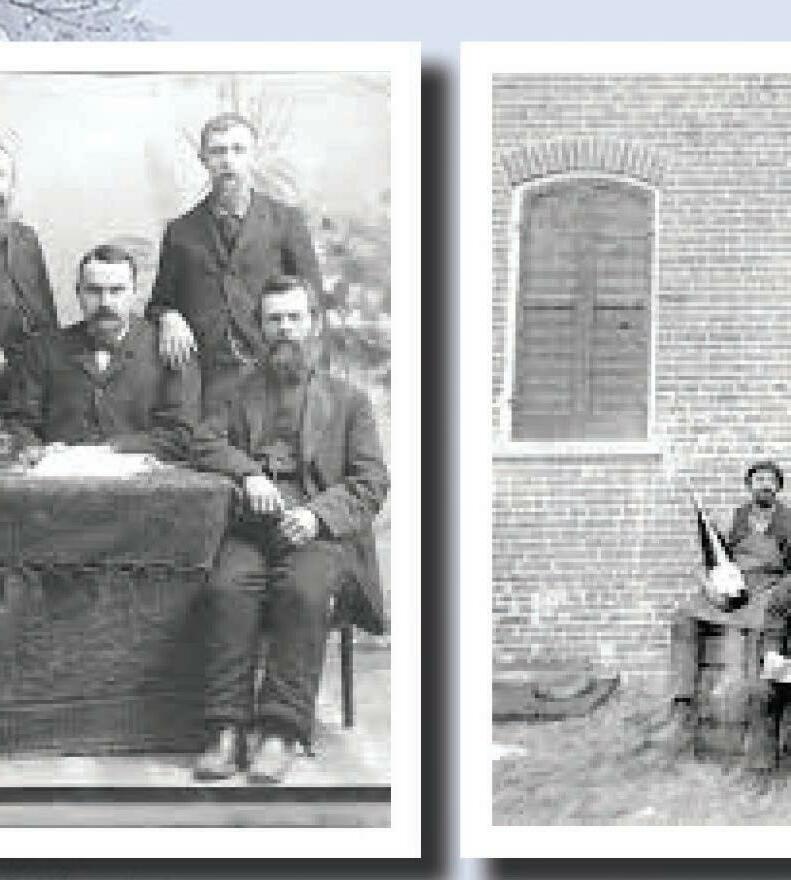
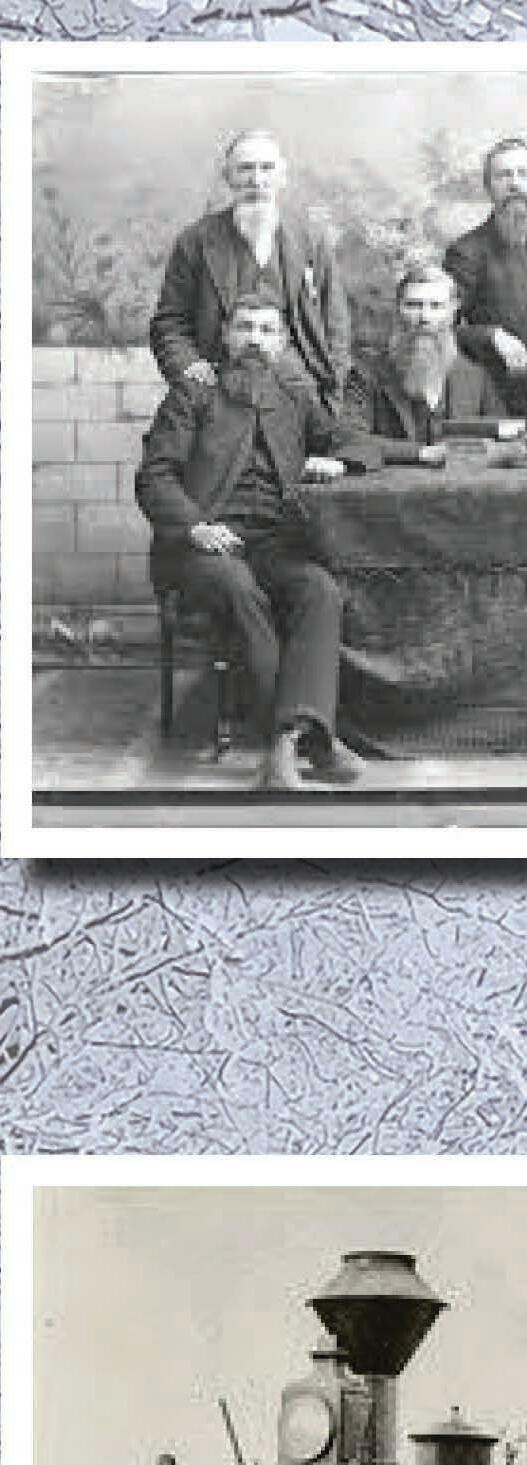

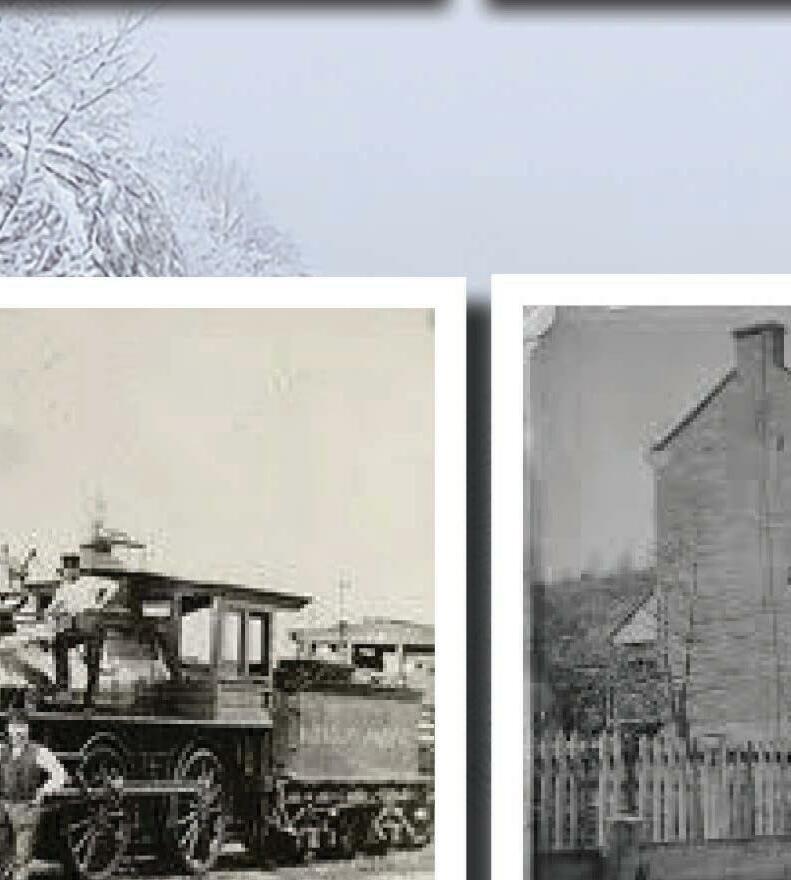













One of Hermann’s businesses, Bar Vin Wine & Spirits, opened this past July at the address of the former UnColor Wine Bar & Gallery, 114 E. Fourth St.
The business is owned by Beth Osler, and is managed by Jessica Fullerton. Bar Vin has two part-time employees who assist Fullerton, who is fully credentialed. Osler has already spent much of 2022 involved in supervising changes to decor and remodeling the bar itself.
Fullerton describes Bar Vin as offering upscale beverages to its customers, including a selection of international wines. Tapas are also available during business, with skillfully curated menus designed for ideal pairings with beverages. Ful lerton also said Bar Vin provides a comfortable, inviting and welcoming atmosphere and setting to customers.
She added that through the knowledge of a passionate staff, Bar Vin allows its guests the joys of “experiencing art in a bottle.” Sharing that knowledge and experience with customers is a love for Fullerton and the staff.
Bar Vin is open five days a week: 4 p.m. to 9 p.m. Monday and Thursday, 4 p.m. to 11 p.m. Friday and Saturday, and 11 a.m. to 9 p.m. Sun day. Both levels are open Friday night and Satur day night until 11.




According to Fullerton, Bar Vin will be tak ing time to completely explore future options for serving Sunday brunch to its clientele.
RAY SCHERER











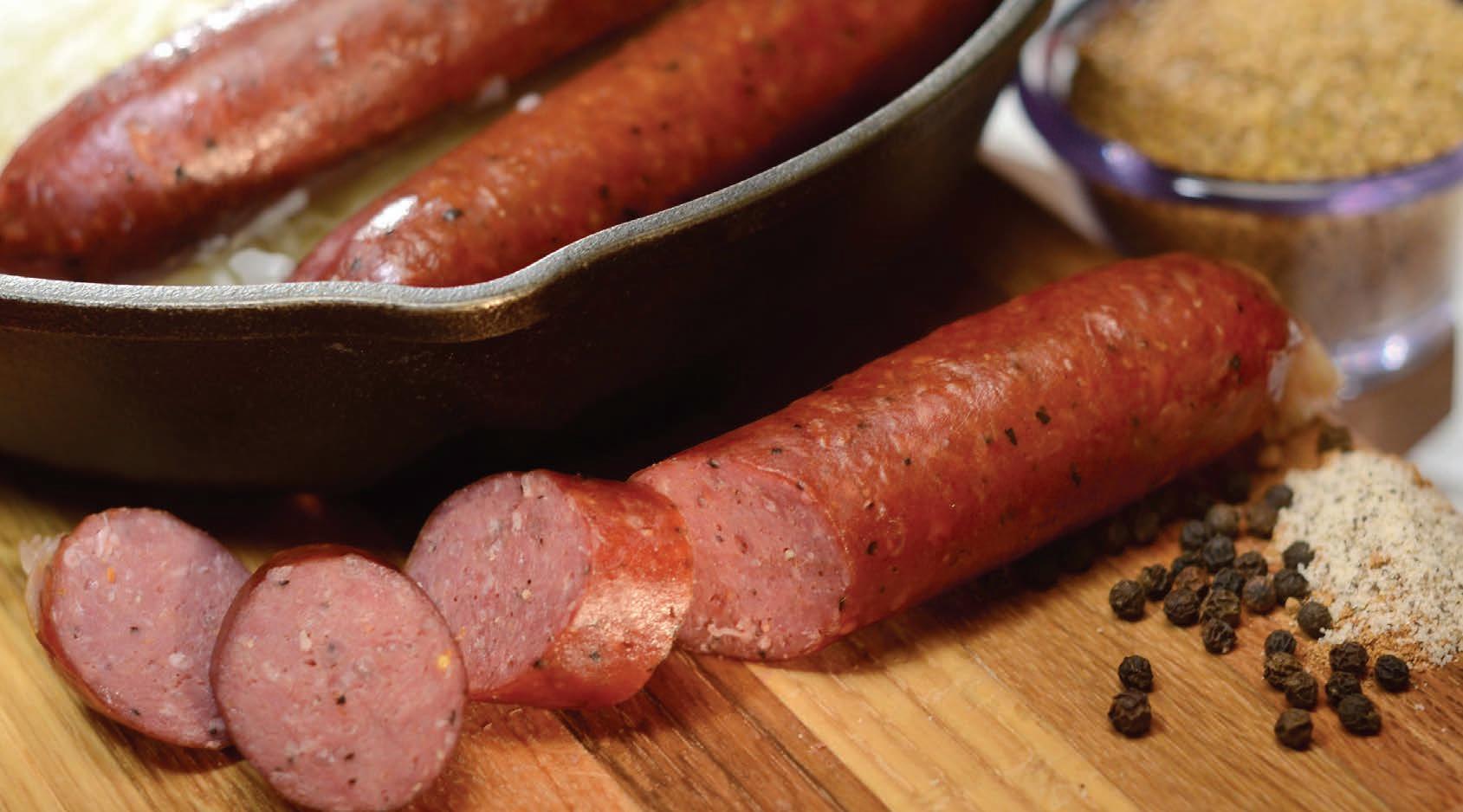

















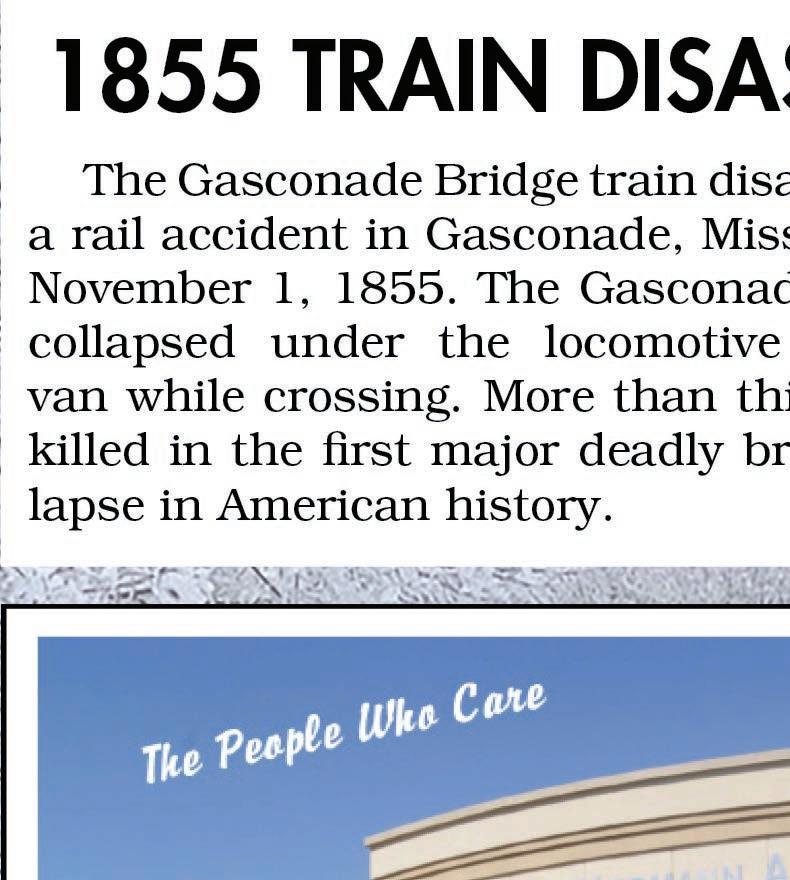



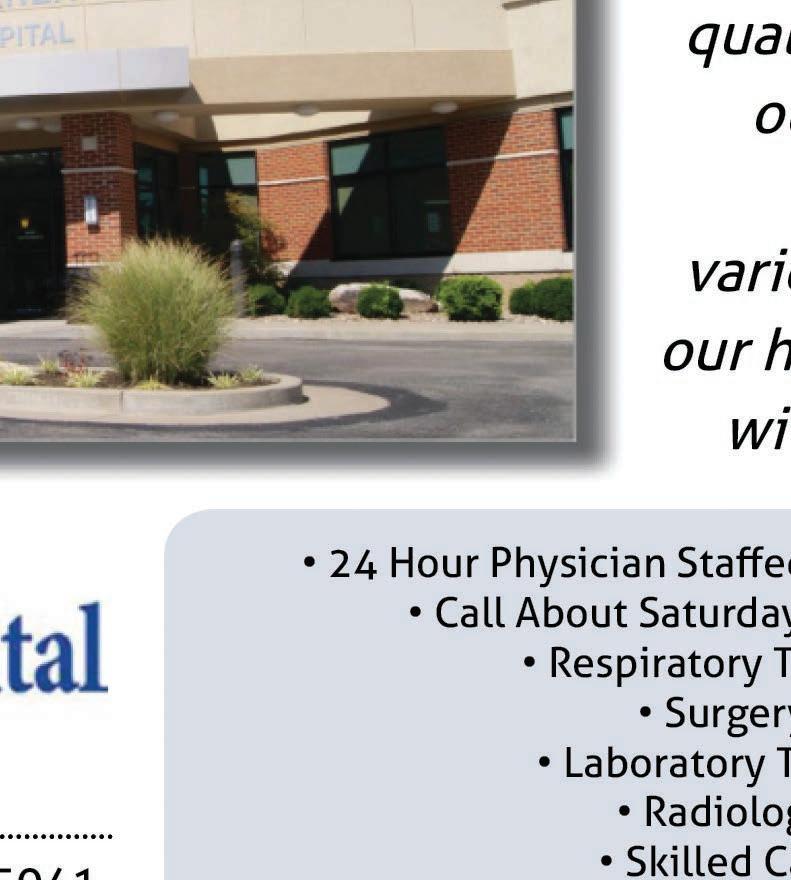

For more than 30 years the gentle slopes and deep soils have rewarded us with amazing fruit to create our Estate Produced wines. Come discover winegrowing at its finest and experience Robller Vineyard. Challenge your senses and perceptions with our world class wine. Wine flights now available for purchase.



Feast Magazine of rich limestone soil to vines heavy with plump clusters of Chambourcin, St. Vincent, Norton and more — Röbller Vineyard combines winegrowing excellence, centuries-old European winemaking traditions and innovative production to create wine like you’ve never tasted from Missouri.
Voted “Best Winery in mid-Missouri” by Feast Magazine readers. From the gentle slopes of rich limestone soil to vines heavy with plump clusters of Chambourcin, St. Vincent, Norton and more — Röbller Vineyard combines winegrowing excellence, centuries-old European winemaking traditions and innovative production to create wine like you’ve never tasted from Missouri.
Voted “Best Winery in mid-Missouri” by Feast Magazine of rich limestone soil to vines heavy with plump clusters Norton and more — Röbller Vineyard combines centuries-old European winemaking traditions and create wine like you’ve never tasted

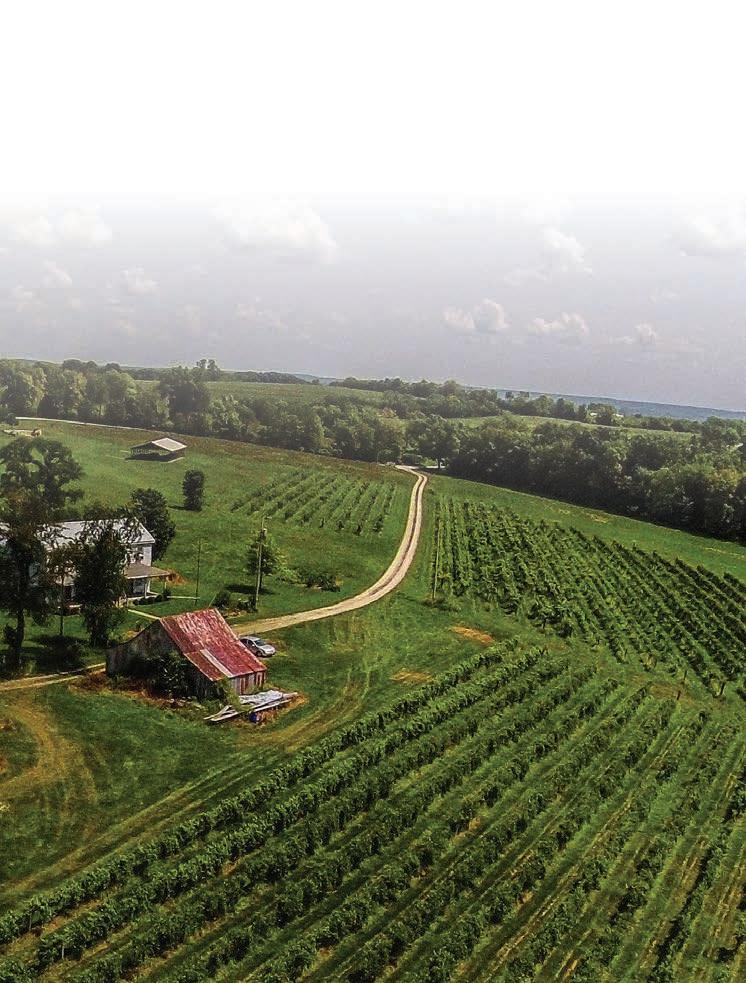

Voted “Best Winery in mid-Missouri” by . From the gentle of rich limestone soil to vines heavy with plump clusters of Chambourcin, St. Norton and more — Röbller Vineyard combines winegrowing excellence, centuries-old European winemaking traditions and innovative production create wine like you’ve never tasted from Missouri.
Open Monday to Saturday, 10 a.m. to 5:30 p.m., Sunday, 12 noon to 5:30 p.m.
Open Monday to Saturday, 10 a.m. to 5:30 p.m., Sunday, 12 noon to 5:30 p.m.
Open Monday to Saturday, 10 a.m. to 5:30 p.m., Sunday, 12 noon to 5:30 Family friendly; picnic baskets, buses and large groups welcome.
Family friendly; picnic baskets, buses and large groups welcome. Complimentary wine tasting.
Family friendly; picnic baskets, buses and large groups welcome. Complimentary wine tasting.
Open Mon – Sat from 10 am Sunday at noon. Family friendly, Picnic baskets and groups are welcome.
Open Monday to Saturday, 10 a.m. to 5:30 p.m., Sunday, Family friendly; picnic baskets, buses and large Complimentary wine tasting.
Look for our events calendar on our website. robllerwines.com | (573) 237-3986
Look for our events calendar on our website. robllerwines.com | (573) 237-3986
Explore the Robller experience through a series of wine flights.
Look for our events calendar on our website. robllerwines.com | (573) 237-3986
Look for our events calendar on our robllerwines.com | (573) 237-3986
275 Röbller Vineyard Road, New Haven, MO 63068
275 Röbller Vineyard Road, New Haven, MO 63068
275 Röbller Vineyard Road, New Haven, MO 63068
275 Röbller Vineyard Road, New Haven,
Jamie Walker is on a quest to perfect his method and style of roasting coffee beans. And if that calls for a trip to Costa Rica, then so be it.
Walker co-owns the Stomp’n Grounds Espresso Bar, 214 E. First St., with his wife, Beth. He ex plained his recent ventures in roasting coffee beans, and why it’s a continual process of learning for him in an overall bid to please the customer.



“We’re an in-house, small batch roaster,” Walker said. The business utilizes a San Franciscan drum roaster for that purpose. The roaster and goal of producing small batches enables Walker to bring out the taste notes better than larger or commercialized coffee products.

Stomp’n Grounds has fostered relationships with importers and small farmers, ensuring that the purchase of their beans is through farms that treat their workers with fair wages and exercise trans parency in such matters as clean water.
“We deal only with specialty coffee,” said Walker of the business. He relies on quality scoring prac ticed by the industry that grades product at a level of at least 80 on a 1-100 scale. The “cupping” is not the final product itself, but rather a means of scor ing and evaluating the coffee via a sensory process, focusing on aroma and flavor. Specialty coffee, he added, is cultivated and harvested for its flavor, while commodity coffee is produced for its caffeine.
With more than a year of his own experience in roasting coffee beans, Walker said it all comes down to “knowing your equipment and the coffee you’re roasting.”
He’s developed a business relationship with a small coffee farm in Costa Rica, planning a Novem ber 2022 visit to converse with the owners and also observe the harvest. Coffee is the single largest ag ricultural product in the world, but in the U.S. is only grown in Hawaii. There are more taste notes for coffee on the flavor wheel than there are for wine.
The specialty coffee farms are very labor in tensive, with the beans picked by hand. Stomp’n Grounds -- which has a roast profile of medium roast -- is working to develop online retail sub scription coffee as soon as it’s feasible. Walker said he’s also going to be searching for a backup roast er, hopefully already experienced, to spell him at times. He undertook much of his training online during the pandemic.
SCHERER









Hermann’s well-regarded Alpenhorn Gasthaus and Alpenhorn Kitchen is changing over this year and next into The Vallet House.
Dave Messner is solely in charge of that rebranding, and explains that his inspiration for the name change comes straight from the residence’s rich history. More specifically, the switchover is a direct nod to the community’s original German settlers who built the Vallet-Danuser House and other structures on site. Messner said the family started a brick factory in the 1830s, with the house dating to 1860, per county records. Historical accounts trace the settlers choosing that part of Gasconade County, on Hermann’s eastern edge, just a few decades earlier with thestart of their building construction.
Messner says he began acquiring guest house property in Hermann in 2019, and bought the Alpenhorn, with the sale finalized in January 2022. He called the site filled with “unique oppor tunities” -- especially in terms of utilizing assets such as the historic wine cellar.



His background in real estate development and the adaptive use of historic properties led Messner to the decision on taking over the Alpenhorn location, which consists of approximately 8 acres inside the Hermann city limits. He’s already deemed the Vallet-Danuser site as consist ing of a substantial portion that can be expanded and developed.
That conception from Messner will feature updates to decor and interior design, accompa nied by plenty of landscaping on the grounds. Already, parking availability has grown due to the vineyard being pulled out, and Messner believes 50 vehicles can now be accommodated. The entrance has also been improved.
Nearby trees have been removed ahead of the planned construction of an events center for weddings. A seasonal beer garden is also in the works, as are an as-yet undetermined number of new cabins in a back portion of the property. Currently, there are two cabins available for use by up to 12 guests. Messner says he’s been renting out the existing cabins since taking over the site in January.

“We didn’t miss a beat,” he adds.
The project has no timeline, but Messner affirms he is pursuing all of the improvements at a steady pace. Construction has yet to occur.
“It’s really just going in phases,” he says.
As chef, Messner is in charge of having dinners prepared for guests on Friday and Saturday. Port tasting is available in the wine cellar.
“The plan is to continue those,” he says.

Starting in January, the menu at The Vallet House will feature accents on Valentine’s Day.






He saluted the efforts of the previous Alpenhorn owners, Adrian Sigrist and Kate Schandl, whom he said “poured their heart and soul” into the bed-and-breakfast establishment. Yet now, the repurposing envisioned by Messner will concentrate on historic preservation, while promot ing a guest house and events center that can host weddings and also provide an adjacent beer garden.
The inspiration for the investment has further been supported by Messner’s recognition of a shift in customer demands, such as the growing public interest in beer gardens. He admits to being bullish on Hermann, noting that he perceives a westward movement of the oncoming tourist experiences from the Augusta and Washington areas.
More marketing and social media efforts are planned as The Vallet House projects continueto develop. For now, the business remains fully booked by clients entirely by word of mouth, according to Messner.
RAY SCHERERThe Hermann Lions Club have a new location and new facility for its traditional kettlekorn sales during spe cial occasions such as Oktoberfest and other noteworthy weekends.

The club debuted its new kettlekorn trailer, where all of the highly aromatic popping and sales occur, this past Oktoberfest adjacent to Hermann Wurst Haus. Members have been citing the great popularity from customers as reason enough for the changes.
After discussions with the City of Hermann, the club chose to accept an offer from Mike Sloan of Hermann Wurst Haus to utilize the business’s rear parking lot on Gutenberg Street for the new kettlekorn sales trailer.


The club has been interested in the move, he contin ued, due to the high level of potential customer traffic in the vicinity -- undoubtedly one of the busiest confluences in Hermann during Oktoberfest or any other weekend, for that matter.
The corn is touted as continually growing in demand as a snack item from the public. It is the Lions’ main fund raiser of the year, with proceeds benefitting scholarships, the leader dog program for the blind, and pickleball. The money is not used for routine club operations. The new location and trailer are designed to maximize profits for the Lions.
The trailer itself is self-contained and has no seating, which the customer will have to provide for themself while waiting for their bag of kettlekorn.
The Lions began their kettlekorn project more than two decades ago. Dave Fagerness has led the effort to create the new kettlekorn trailer for the club’s use. The product is sold at other typical weekend festivals in Her mann and is also donated at local events.
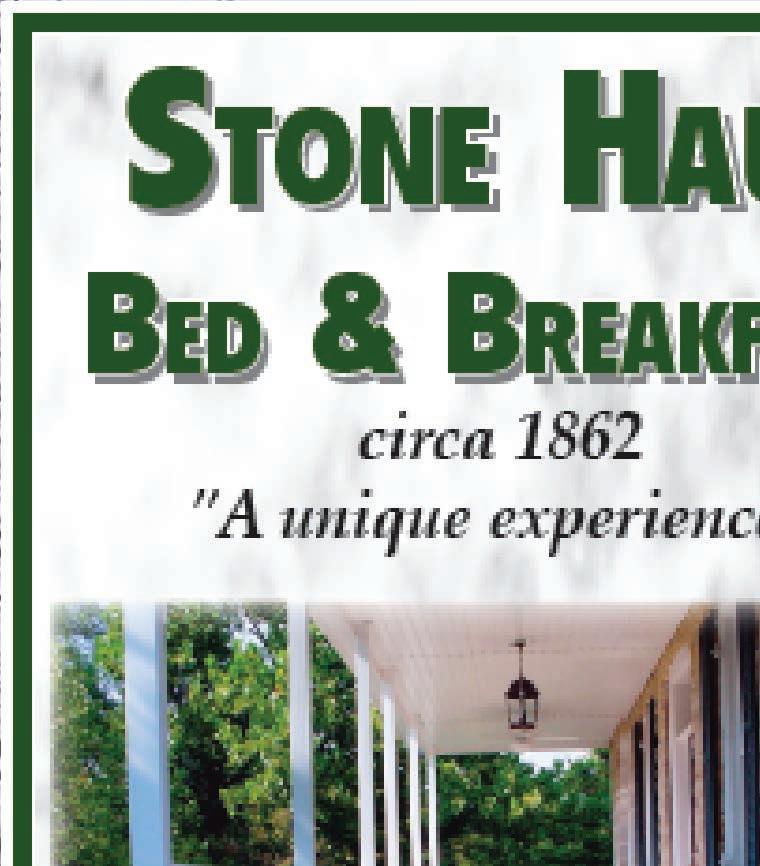
Ray Haeffner has been among the Lions’ crew who assist at the trailer, and helped start the now-famous ket tlekorn operation for the club back in the late 1980s.
RAY SCHERER























